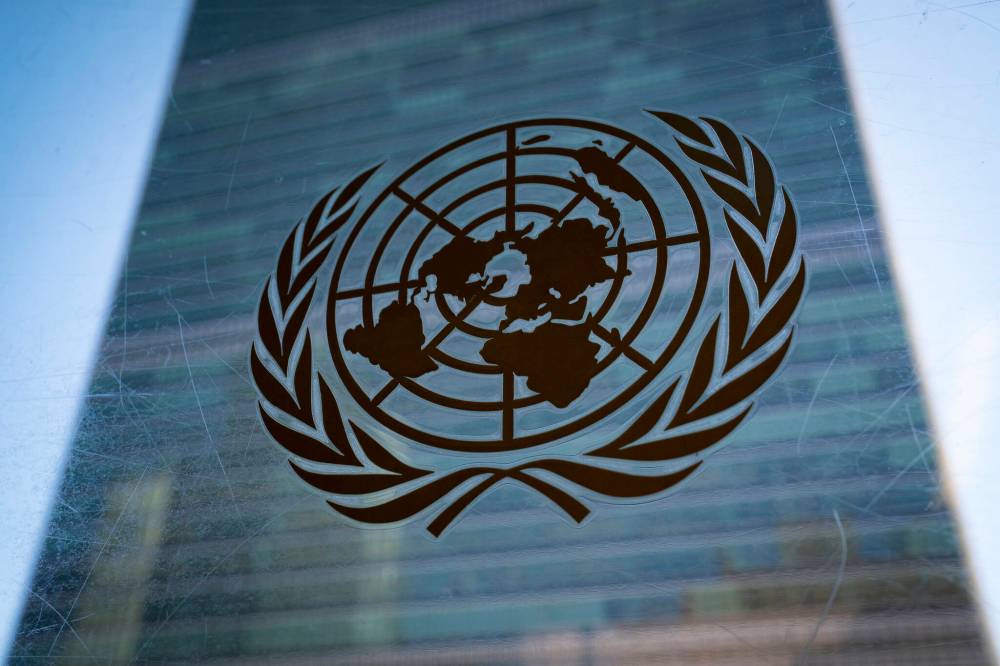UN committee rightly calls out Canada’s devaluing of disability
Advertisement
Read this article for free:
or
Already have an account? Log in here »
We need your support!
Local journalism needs your support!
As we navigate through unprecedented times, our journalists are working harder than ever to bring you the latest local updates to keep you safe and informed.
Now, more than ever, we need your support.
Starting at $15.99 plus taxes every four weeks you can access your Brandon Sun online and full access to all content as it appears on our website.
Subscribe Nowor call circulation directly at (204) 727-0527.
Your pledge helps to ensure we provide the news that matters most to your community!
To continue reading, please subscribe:
Add Brandon Sun access to your Free Press subscription for only an additional
$1 for the first 4 weeks*
*Your next subscription payment will increase by $1.00 and you will be charged $20.00 plus GST for four weeks. After four weeks, your payment will increase to $24.00 plus GST every four weeks.
Read unlimited articles for free today:
or
Already have an account? Log in here »
Hey there, time traveller!
This article was published 10/06/2025 (232 days ago), so information in it may no longer be current.
Earlier this year, an expert United Nations committee rebuked Canada for its medical assistance in dying (MAID) regime.
In doing so, the United Nations Committee on the Rights of Persons with Disabilities confirmed a key criticism voiced by Canadians with disabilities in recent years: that the massive expansion of MAID in Canada puts a target on the back of the disability community.
The committee expressed concern that Canada’s approach to MAID emphasizes individual autonomy without offering sufficient safeguards to protect vulnerable populations, especially persons with disability.

The experts called on Canada to reject the “Track 2” designation that makes MAID available to persons whose deaths are not reasonably foreseeable.
That Track 2 designation became possible in 2021, when the federal government accepted a lower Quebec court ruling that said MAID could not be limited to individuals’ whose deaths were reasonably foreseeable. The government responded by changing its eligibility criteria to permit people with incurable illnesses or disabilities who are suffering — but whose deaths are not reasonably foreseeable — to qualify for MAID.
Health Canada’s annual reports on MAID demonstrate how these changes have affected uptake of MAID.
Its most recent report shows 15,343 people received MAID in Canada in 2023 — a nearly 16 per cent increase from 2022. Between 2019 and 2022, the average annual growth rate in MAID cases was 31 per cent. By 2023, just over four per cent of all Canadian deaths were the result of MAID.
Statistics indicate Track 2 is disproportionately accessed by women with disabilities and Canadians with disabilities in marginalized situations, the UN committee noted.
The committee’s unequivocal recommendation is that Track 2 MAID be repealed. In making this recommendation, it flagged various concerns with the actions of the federal government. These ranged from procedural flaws (such as the government’s failure to consult marginalized groups), insufficient scrutiny of MAID and a lack of assessment into systemic inequities faced by persons with disabilities.
If that were not problematic enough, the committee also took exception to the fact that the federal government did not challenge the Quebec court decision that led to Canada introducing Track 2 MAID.
As the committee noted, that decision fundamentally changed the whole premise of MAID. It assumes “‘suffering’ is intrinsic to disability rather than the fact that inequality and discrimination cause and compound ‘suffering’ for persons with disabilities.”
This strong language from a UN body should cause Canadian governments to pause and reflect on their actions.
Many pro-MAID activists have relied on the mantras of autonomy and choice as a liberating concept. The committee clearly saw through these arguments.
As it noted, there is overwhelming evidence that Canadians with disabilities have chosen death as a result of the failure “to address the social determinants of health and well-being, such as poverty alleviation, access to health care, accessible housing, prevention of homelessness, prevention of gender-based violence, the provision of community-based mental health supports and employment supports.”
Canadians with disabilities have long faced social marginalization. While some progress has been made, many continue to live in precarious conditions, marked by inadequate care and persistent vulnerability.
In this context, the Canadian government now offers euthanasia and assisted suicide as an apparent solution to the suffering these individuals may endure.
Though framed as a matter of “choice,” this is more accurately understood as a coerced outcome — one shaped by the same government’s failure to provide sufficient social and health-care support.
As the UN committee has noted, Canada’s expansion of MAID is rooted in systemic devaluation of disability and a flawed ideology of absolute autonomy. What is presented as a voluntary option emerges instead from an environment of discrimination and deprivation imposed on a group for whom dignity, support and hope are too often withheld.
» David Shannon is a Canadian lawyer, disability/human rights activist, and contributing author to the Macdonald-Laurier Institute. He has advised governments in Canada on numerous committees and is a recipient of the Order of Canada for his contributions to human rights. This article originally appeared in Canadian Affairs.
